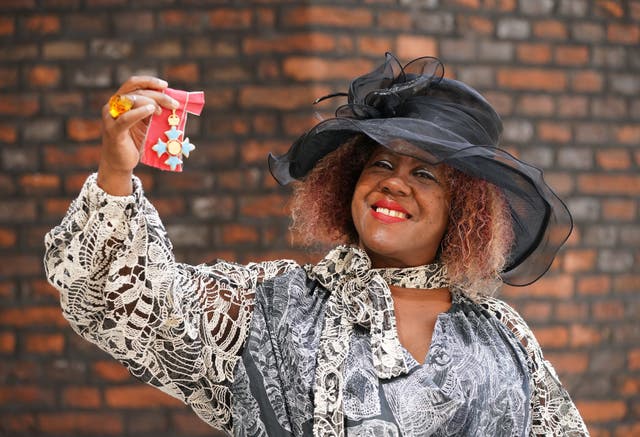
British composer Errollyn Wallen has said she received hundreds of “very abusive” messages after creating a new version of Jerusalem for the Proms but feels it was important to reflect the Commonwealth connection to the song.
Three weeks before the Last Night Of The Proms in 2020, the Belize-born musician was commissioned to create a new arrangement of the classic hymn to accommodate the slimmed down orchestra due to pandemic restrictions.
Speaking to BBC Radio 4’s Desert Island Discs, Wallen revealed she wanted to delve into the meaning of the words written by William Blake, and added a line in her version to show the connection of British hymns to Commonwealth people.

She said: “The work is dedicated to the Windrush generation and also the fact that it’s little understood that in the colonies, de facto, we live with the music of England.
“And so in Belize, all these hymns are our hymns, and so I’ve also put a little, added an extra sentence, mentioned that we Commonwealth people, we sing with you.
“There was nothing controversial, I didn’t think, about what I was doing but certainly it seemed to cause a bit of fury.”
Wallen said she was “really shocked” at the backlash it received, recalling: “I spent the next day, Sunday, just going through deleting, deleting, deleting, hundreds and hundreds of messages, very abusive, thinking ‘well, actually, when was the last time somebody really talked about a new piece of music in the national press, so yeah, I’ll take it’.
“I’m proud of that piece of music. All I did was put a introduction that was very delicate and then we move by the end into the rousing, recognisable thing of Jerusalem.
“And the other thing is that Jerusalem has had so many reimaginings, hundreds of them.”
She revealed that some of the messages were racially charged, with one person writing on social media, “what’s the black woman know about Jerusalem?”.
Wallen added: “That’s when I thought, ‘They don’t realise the song belongs to us’.
“It belongs to all the Commonwealth because that’s what we’ve grown up singing it, it’s everybody’s.
“So I hadn’t realised there was a problem, that there’s certain sacred things that no black person must touch.
“I, as a composer, I feel like music belongs to everyone, it always has done.”
During her career, Wallen has created other politically inspired pieces including Our English Heart about the 1805 Battle of Trafalgar, which referenced colonialism and Empire.
Wallen said: “I feel I should be telling the stories of our time, not to say that I don’t feel very connected to centuries past.
“I’m very connected to the tradition of classical music and I revere Vivaldi, Bach and Beethoven, Mozart, but I live here now in my environment, and music is this incredible force of energy and love and I feel as a composer I have a responsibility to other people.”
The multi-award winning composer and performer has 22 operas to her name and a large catalogue of orchestral, chamber and vocal works which are performed and broadcast throughout the world.
She was the first black woman to have a work featured in the Proms and the first woman to win the Ivor Novello Award for Classical Music, as well as composing for the opening ceremony of the Paralympic Games 2012, and for the Cop26 conference in Glasgow.
Wallen shared her frustration that classical music is seen as a genre for the wealthy and privately educated as she praised her school which offered free music lessons as the reason she has got to where she has.
She said: “We grew up with music, it was part of the fabric of school life. And you’d play in your local orchestra, terribly of course, but everybody would play. There wasn’t this hierarchy.
“My absolute abject despair is that soon it will only be people with money who will be playing classical music.
“Now, this music was never created by super wealthy people. It was made by people who were part of a trade, that’s who composers were, and people who had something to say and had a great talent to share.
“I don’t know how we got to this point where it’s perceived as this elite thing just for some people because all the musicians I’ve worked with, they are so dedicated and just in love with the passion that music gives us all.”
She said a culture needs to be created that is not “suspicious of things that are really good for us” to help open up classical music spaces to a wider spectrum of society.
The full Desert Island Discs episode of Errollyn Wallen is available on BBC Radio 4 on Sunday from 10am and BBC Sounds.


Comments: Our rules
We want our comments to be a lively and valuable part of our community - a place where readers can debate and engage with the most important local issues. The ability to comment on our stories is a privilege, not a right, however, and that privilege may be withdrawn if it is abused or misused.
Please report any comments that break our rules.
Read the rules here